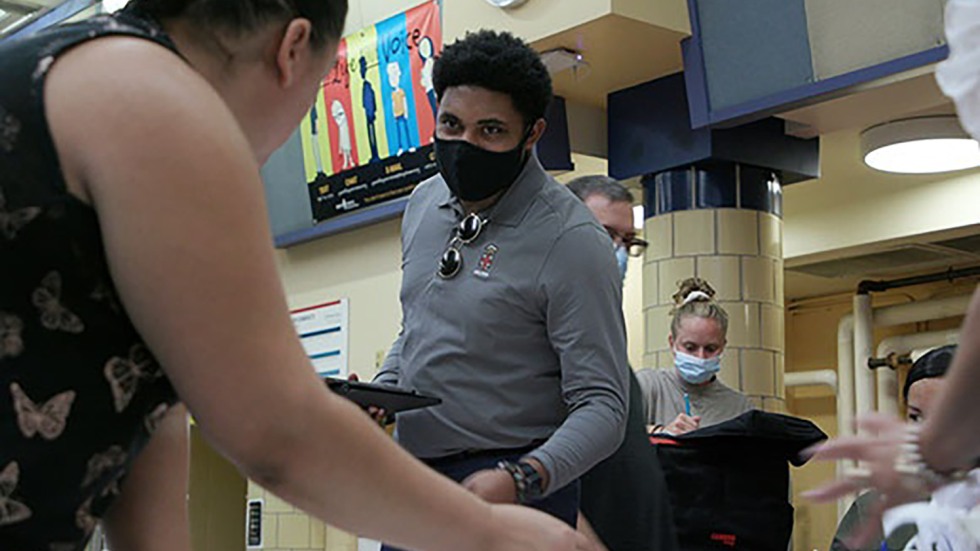Students and their parents in Central Falls, RI were empowered – through Voces Con Poder (Voices with Power) – to decide how certain Covid-relief funds could benefit their local schools. The Central Falls’ school district leadership recruited Jonathan Collins, assistant professor of Education and International and Public Affairs, and his team of research assistants to develop and administer surveys, to observe and engage with participants, and to create a longitudinal study for tracking long-term civic participation.
The summer-long process did far more than simply allow students and parents to choose where funds could be directed, it also changed participants’ perspectives of the local power landscape. “That’s key to having long-term civic participation; individuals must believe that people in their same position have the power to improve and change conditions,” says Collins. “We knew this would offer us a really exciting opportunity to explore the extent to which democratic innovation strategies are useful in improving the school experience, particularly for students in communities of color.”
What is participatory budgeting?
The Central Falls School District designated $100,000 of Covid-relief funds (Elementary and Secondary School Emergency Relief Funding) to the participatory budgeting process, which invited every community member to submit their ideas to improve the local schools. (The year before, the school district had allocated $10,000 to a smaller-scale participatory budget process.)
Collins and his team collected some 125 idea surveys in June 2021, which generated 240 ideas. Then, approximately three dozen residents – students (fifth graders and older) and parents – were chosen as delegates. The delegates met twice a week for eight weeks and were tasked with curating and evaluating the submitted ideas and developing ideas that met specific criteria (urgency, feasibility, durability, and funding eligibility) into nine structured proposals, which students and parents later voted on.
For their participation, delegates received stipends and meals; and Spanish translators were available at every meeting. Central Falls’ administrators, says Collins, “were so thoughtful about being accommodating, and that enabled participation to be much easier.”
In August 2021, 146 parents and students turned out to vote – in a middle school gym lacking air-conditioning during Rhode Island’s hottest day then on record. The winning ideas focused on after-school extra-curricular programs and an app to improve communications among students, parents, and faculty/staff about school safety concerns. Central Falls’ school administration vowed to provide additional funding to support these initiatives.
